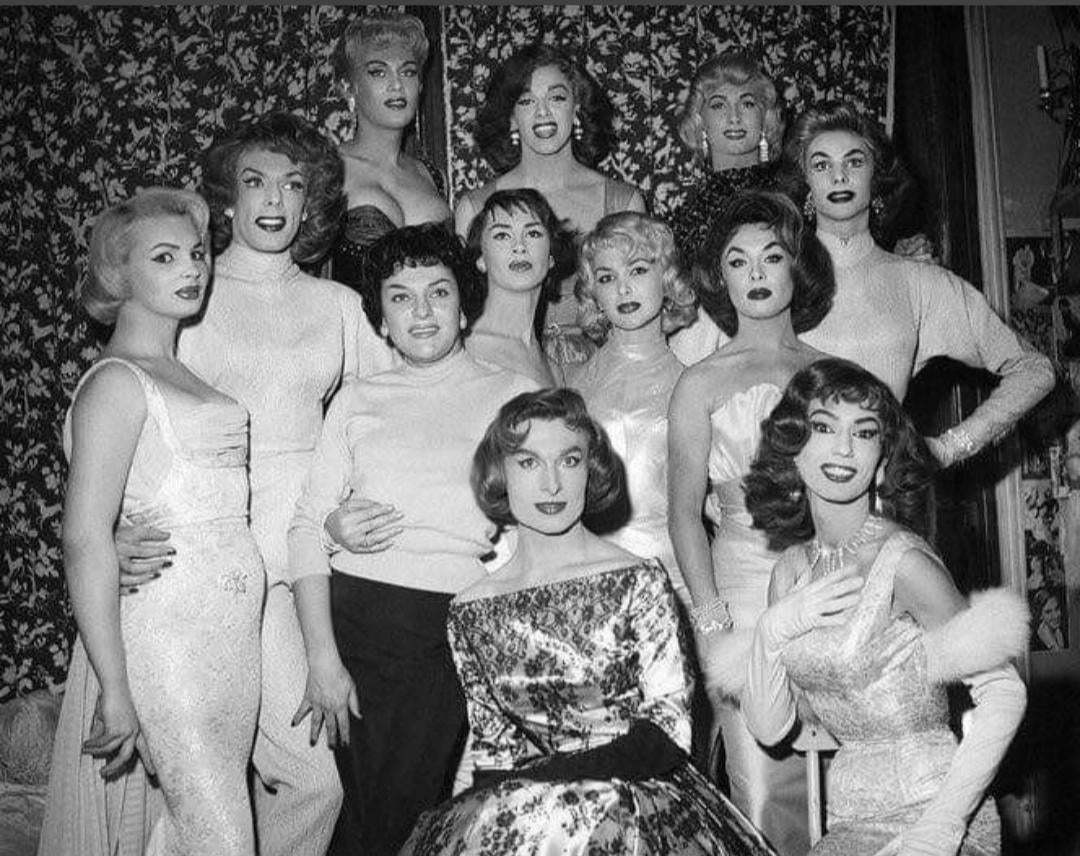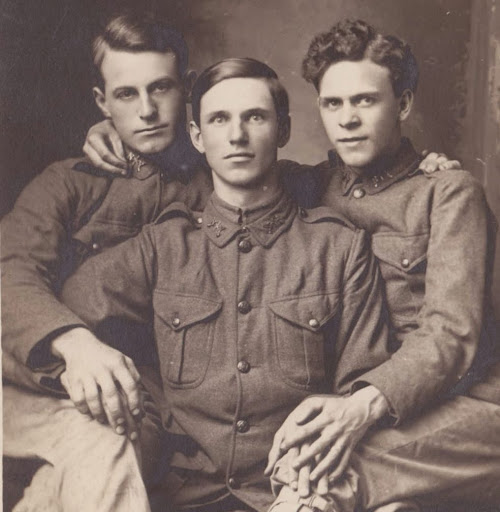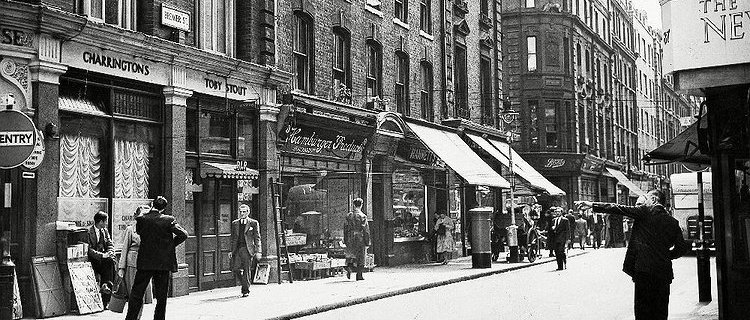Polari: The Language of Gay London
Posted on 26th July 2021
Polari (from the Italian Parlare, to speak) was the language of the English subculture. It was used throughout the country but mainly in London where it was spoken by market traders, in fairgrounds, at dog tracks and by the criminal fraternity. But it was to be among the homosexual community that it really took a hold.
Polari emerged in the late eighteenth century as a mixture of cockney rhyming slang and the many different languages that were spoken in immigrant London at the time and as the policing of the city became more rigorous and systematic so did the devices adopted by those wishing to evade it, and language was one of them.
There were also variations of Polari within London itself with that used in the East End based on the slang of the dock workers and canal boat men and the language used by the large homosexual community resident in the West End who often used theatrical and music hall references. The two were eventually to crossover and merge but whereas its use would decline in general as time wore on it would continue to develop and flourish within the homosexual community.

Prior to the Sexual Offences Act of 1967, to have a same sex relationship or have a same sex encounter was a crime. It was also an offence that the police appeared to take particular relish in prosecuting and so Polari soon became a second language used by homosexuals, in particular gay men, to stay one step ahead of the law.
Such was the stigma attached to it that to be arrested for a homosexual offence could destroy careers and break lives, and for many homosexual men marriage was a means whereby rumours about ones sexuality could be denied and gossip deflected.
This was a convenience that for many gay men did not exist as an option. More overtly effeminate men were often the subject of whispered allegations and worse and were particularly vulnerable to police harassment and it was among this group that the use of Polari became increasingly commonplace.
Among the upper-classes homosexuality was largely turned a blind eye to and even indulged as long as those who practised it behaved with a modicum of discretion and were not caught in flagrante delicto. This was not the case for the middle classes and those who worked in the professions. Throughout the 1950's and early 1960's numerous barristers, teachers, doctors and prominent businessmen were arrested and saw their careers ended as a result of a homosexual indiscretion. It was also common for a wife aware of her husband’s homosexuality to cover up for him to preserve the standard of living for herself and her children that only her husband could provide. Particularly as this was a time when far fewer women worked and those who did were often employed in low paid jobs devoid of prospects.
Within the working-class homosexuality was simply unacceptable. Anyone accused of a homosexual act would face being abandoned by their family, ostracised by their local community and be in constant fear of violent assault. They were effectively run out of town.
Known homosexuals would also often be rounded up for random questioning whenever a sexual crime had been committed against a minor on the grounds that as "perverts" they were always likely suspects.
The decade prior to the 1950's had been a boom time for sexual activity of all kinds. The war years had witnessed a breakdown in the strict moral code that had governed the behaviour of people since the Victorian era, and it provided ample opportunity for people to indulge their sexual predilections with little fear of being caught.
The number of sexually active young men, often from abroad and in uniform on the streets of Britain's cities and looking for a good time increased immeasurably. The Black Out was so strict that you could often not even see who you were having sex with let alone be caught doing it. As a result, there was a sharp increase in gay and transvestite prostitution and there was to be many a soldier who was not only fleeced of his money but found himself the recipient of more than he had bargained for.
Quentin Crisp, the future author, raconteur, and actor, who had been turned down for military service on the grounds that he suffered from a sexual perversion wrote of his happiness during the war years as he took advantage of the many thousands of young men abroad and away from the restraints of home who were able to express their new-found sexual freedom with impunity for the first time.

Homosexuals did of course serve in the Armed Forces during the war and for many it was to be the first time they had encountered some degree of, if not acceptance, then toleration. The other men in the Unit would invariably have been aware of who amongst them was gay and though they could often be patronised such as being made the Company mascot, they were generally tolerated and often even protected by their comrades. When faced with the prospect of death another's sexuality hardly seems to matter.
In the Prisoner-of-War Camps the more effeminate homosexual men would often play the female roles in the shows that were put on to entertain their fellow prisoners. Known as the girlfriends, they were rarely without boyfriends.
The Military Authorities in the main turned a blind eye to homosexual activity within the Armed Forces. If it could be swept under the carpet then all well and good, it was after all a time of war and of all hands to the pump.
It was widely assumed that homosexual men were by nature weak and cowardly with a propensity to hysteria, but many had displayed outstanding courage and had finished the war with distinguished service records.
The war years were to break down a great many social barriers and prove the lie to a great many myths, but it would be wrong to think that everything was rosy in the garden. Homosexual men were still court-martialled, drummed out of the service and on occasions imprisoned.
The coming of peace however saw a crackdown on the licentiousness of the war years and the moral code that had briefly been removed was very quickly re-imposed.
The Authorities were eager to halt what they perceived to be the slide into moral decay. Their weapons of choice were to be the Law and the Police. Censorship was enforced in the theatre; many nightclubs were closed down and homosexuality was again forced underground. Among those prosecuted during this period was the brilliant mathematician and computer scientist Alan Turing. He had been awarded the O.B.E for his pivotal work at Bletchley Park during the war in cracking the German Enigma Code.
In January, 1952, he reported a man, Arnold Murray, whom he had met in Manchester to the Police for breaking into his home. During their investigations however, the Police discovered that Turing and Murray had in fact been lovers. Both men were subsequently charged with indecency under Section II of the Criminal Law Amendment Act of 1885, the same law under which Oscar Wilde had been prosecuted.
Found guilty, rather than go to prison Turing chose to undergo a course of chemical castration. Despite agreeing to undergo a course of treatment that was still in its experimental stage, Turing saw his life ruined. He lost his job at G.C.H.Q (the centre for British Intelligence gathering). His attempt to continue his work abroad was aborted when he was refused entry to the United States. The humiliation of his situation he found unable to endure and so on 8 June 1954, he committed suicide by taking a bite from an apple laced with cyanide.
Another prominent figure to fall foul of the law was the recently knighted actor Sir John Gielgud. In 1953, he was arrested for cottaging in a Chelsea public lavatory. Convicted of lewd behaviour many people, himself included, thought it heralded the end of his career. But Sir John was from an old and distinguished theatrical family and the profession rallied around him. Even so he avoided public appearances and even turned down movie roles for a great many years to come. He later admitted to feeling personally humiliated by the experience for the rest of his life.
Homosexuality had once again been reduced to a clandestine activity committed in the dead of night, in parks, on street corners and at bus shelters. But to those within the homosexual community, to those in the know, there were the locked basement rooms of nightclubs and the secret partitions in pubs.
The Turing case had shown that even sex between consenting adults in the privacy of one’s own home was no bar to prosecution. Neither was fame, fortune, or reputation. Secrecy was paramount, and many prominent people including Noel Coward, Cecil Beaton, Benjamin Britten, and Siegfried Sassoon among them lived in constant fear of being exposed.
So, the 1950's saw a revival in the use of Polari, many words of which, such as, blag, barney, clobber, khazi, naff, scarper, and strides have since become part of our common language and it was used to pull the wool over the eyes of the police and was a means by which gay people could both recognise and acknowledge one another and communicate outside of their usual haunts.
It became more widely known to the public at large when a segment of the popular radio show Around the Horne was devoted to Julian and Sandy, two overtly camp men played by the actors Kenneth Williams and Hugh Paddick who regularly used Polari in their sketches.
Polari began to go out of fashion following the Sexual Offences Act of 1967 and the decriminalisation of homosexuality. This had resulted from a series of Private Members Bills that were passed into law by the Labour Home Secretary Roy Jenkins. It legalised same gender sex for consenting adults aged over 21. With the effective legalisation of homosexuality the need for Polari and for homosexuals to have a secret language all of their own ceased to exist.
A Brief Glossary of Polari Words and Expressions:
1) Alamo – Hot For
2) Aunt Nell’s - Ears
3) Aunt Nelly Fakes – Earrings
4) Barney - Fight
5) Basket – Male Genitalia
6) Bibi – Bisexual
7) Blag – Pick Up
8) Bod - Body
9) Bona - Good
10) Bona Drag - Good Outfit
11) Bona Nochy - Goodnight
12) Bonaroo – Wonderful
13) Bungery - Pub
14) Butch – Masculine
15) Cackle - Gossip
16) Camp – Effeminate
17) Carto - Penis
18) Charpering Omi – Policeman
19) Chicken – Young Man
20) Clobber - Clothes
21) Dilly Boy - Male Prostitute
22) Dish - Buttocks
23) Dolly - Pretty
24) Dona – Woman
25) Dorcas - Darling
26) Doss - Bed
27) End - Hair
28) Fantabulosa - Fabulous
29) Esong – Nose
30) Fruit - Queen
30) Handbag – Money
31) Jubes - Breasts
32) Lallies – Legs
33) Lilly Law – Police
34) Naff - Awful
35) Mince - Walk Affectedly
36) Ogle - Look
37) Omi Palone - Effeminate Man
38) Orbs – Eyes
39) Palliass - Back
40) Palone Omi - Lesbian
41) Scarper - To Run Off
42) Screech – Speak
43) Sharpy Polone – Policewoman
44) Slap - Makeup
45) Strides - Trousers
46) Switch - Wig
47) Trade – Sex
48) Vera Lynn – Gin
49) Vogue - Smoke
50) Zhoosh - Style
Tagged as: Miscellaneous
Share this post:





